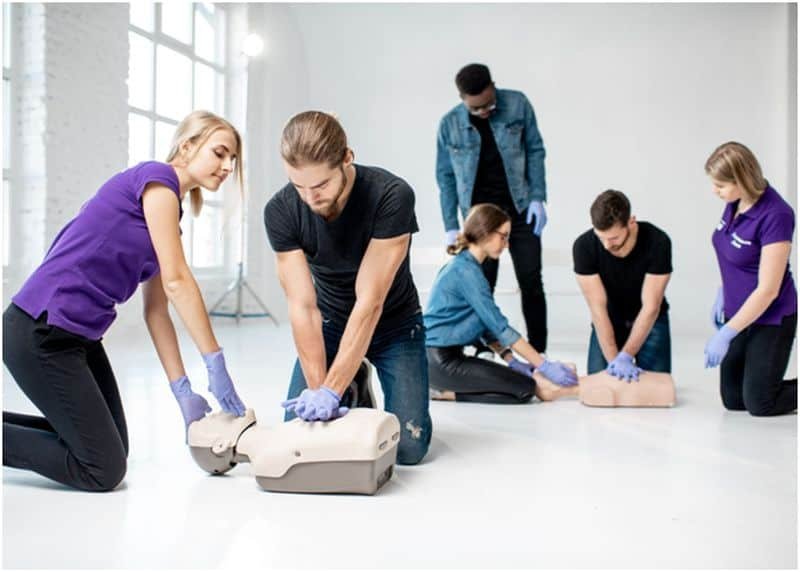Preparing for your PALS Certification is an important step in advancing your medical career, especially if you’re working in pediatric care, emergency response, or critical care. The Pediatric Advanced Life Support Course equips healthcare professionals with the skills and knowledge needed to respond effectively in life-threatening pediatric emergencies. But passing the exam requires more than attending a class—it demands focused PALS exam prep and the right strategies.
Whether you’re planning for your PALS test in Dubai or anywhere else, this guide will give you practical study tips, actionable strategies, and helpful resources to boost your confidence and increase your chances of success.
Why Preparing for the PALS Exam Matters
The PALS certification exam is not just a test of memory—it’s an evaluation of your ability to apply lifesaving knowledge in critical scenarios. Proper preparation ensures you:
- Retain vital clinical knowledge.
- Master algorithms for cardiac arrest, shock, and respiratory emergencies.
- Stay confident under exam and real-life pressure.
- Meet the professional standards required by healthcare institutions worldwide.
In cities like Dubai, where healthcare training is held to global standards, passing the exam can open doors to better opportunities and career advancement.
Step-by-Step Guide for Effective PALS Exam Prep
1. Understand the PALS Exam Structure
Before diving into study material, familiarize yourself with what the exam covers. Generally, the exam includes:
- Multiple-choice questions on pediatric emergency care.
- Case-based scenarios testing your decision-making.
- Skills assessments (practical testing during the course).
Knowing the format helps you focus your energy where it matters most
2. Start With the PALS Provider Manual
The PALS Provider Manual is your best friend during preparation. It contains all the algorithms, case scenarios, and study content you need. Instead of relying on random notes, go through the manual systematically. Highlight key algorithms and use sticky notes for quick reference.

3. Master the PALS Algorithms
The backbone of the exam lies in understanding and applying the PALS algorithms. Focus on:
- Pediatric BLS algorithm.
- Cardiac arrest management.
- Tachycardia and bradycardia with a pulse.
- Post-resuscitation care.
Flashcards or flowcharts are helpful tools. Keep them handy and review them daily
4. Use Practice Tests and Mock Scenarios
One of the most effective strategies for PALS exam prep is practicing under test-like conditions. Many training institutes, including Prime Wellness Training Institute, offer practice exams and hands-on sessions that simulate real-life emergencies.
Practice tests help you:
- Identify knowledge gaps.
- Build time-management skills.
- Get comfortable with exam-style questions.
5. Join a Trusted Training Institute in Dubai
If you’re taking the PALS test in Dubai, enrolling in a reliable training provider ensures you get quality guidance. A professional institute provides certified instructors, structured learning, and mock simulations.
For example, Prime Wellness Training Institute offers internationally recognized courses designed to prepare healthcare professionals for both the written and practical aspects of the PALS exam.
6. Create a Personalized Study Schedule
Consistency is key. Instead of cramming a week before the test, design a study plan that allows steady progress. Here’s a simple example:
- Week 1: Review basic pediatric life support (airway, breathing, circulation).
- Week 2: Study PALS algorithms for cardiac arrest and shock.
- Week 3: Work on rhythm recognition and medication dosages.
- Week 4: Take practice exams and review weak areas.
Stick to your schedule and adjust as needed.
7. Focus on Rhythm Recognition
Cardiac rhythm interpretation is a crucial skill in the PALS certification exam. Ensure you can differentiate between:
- Ventricular fibrillation (VF)
- Pulseless ventricular tachycardia (VT)
- Bradycardia
- Supraventricular tachycardia (SVT)
Use online ECG simulators and rhythm strips for extra practice.
8. Learn the Pediatric Medication Dosages
Another area that often challenges students is drug dosages. Memorize the common medications used in pediatric emergencies:
- Epinephrine
- Amiodarone
- Atropine
- Adenosine
Using mnemonic devices can make dosage retention easier. For example: “Every Active Athlete Achieves” → Epinephrine, Amiodarone, Atropine, Adenosine.
9. Practice Hands-On Skills
Since the exam includes a practical assessment, make sure you practice:
- Bag-mask ventilation.
- High-quality chest compressions.
- Intraosseous (IO) access and medication administration.
- Team dynamics in resuscitation scenarios.
Hands-on training builds confidence and ensures you can apply theory in real-world situations.
10. Stay Calm and Confident on Exam Day
Finally, mental preparation is as important as studying. On exam day:
- Get a good night’s sleep.
- Eat a balanced meal to stay energized.
- Arrive early and bring all required documents.
- Take deep breaths if you feel anxious.
Remember: The goal of the Pediatric Advanced Life Support Course is not just to test you, but to make sure you’re prepared to save young lives.
Additional Resources for PALS Test Success
- American Heart Association (AHA): Official PALS Resources
- YouTube Medical Channels: Free video tutorials on PALS algorithms and case scenarios.
- Medical Flashcards Apps: Tools like Quizlet for algorithm memorization.
Combining these with structured training at a certified institute can maximize your success.
Final Thoughts
Passing your PALS certification exam requires dedication, preparation, and the right study approach. By using the PALS Provider Manual, mastering algorithms, practicing with mock exams, and joining a reputable training institute like Prime Wellness Training Institute in Dubai, you can feel confident and well-prepared.
Remember, the ultimate goal of the Pediatric Advanced Life Support Course is not just passing the exam—it’s equipping yourself with the knowledge and skills to save lives in critical pediatric emergencies.
So, start your PALS exam prep today, follow these proven strategies, and take the next big step in your healthcare journey.



